Vitamin D, often referred to as the “sunshine vitamin,” plays a crucial role in maintaining overall health. For vegans, ensuring adequate intake of this essential nutrient can be challenging due to the limited plant-based sources. This comprehensive guide will delve into the importance of vitamin D, its benefits, sources, and how vegans can optimize their intake to maintain optimal health.
Why Vitamin D is Essential
Vitamin D is vital for several bodily functions, including:
- Bone Health: It aids in the absorption of calcium and phosphorus, essential for maintaining strong and healthy bones.
- Immune Function: Vitamin D supports the immune system, helping to fend off infections and reduce inflammation.
- Mood Regulation: Adequate levels of vitamin D are linked to improved mood and reduced risk of depression.
- Disease Prevention: Research suggests that vitamin D may play a role in reducing the risk of chronic diseases such as heart disease and certain cancers.
Challenges for Vegans
Many of the richest sources of vitamin D are animal-based, such as fatty fish, egg yolks, and liver. This poses a challenge for vegans, who must rely on alternative sources to meet their vitamin D needs.
Vegan Sources of Vitamin D
Vegans can obtain vitamin D from the following sources:
- Sunlight: The body can synthesize vitamin D when the skin is exposed to sunlight. Spending about 10-30 minutes in the sun several times a week can help maintain adequate levels.
- Fortified Foods: Many plant-based milks (such as soy, almond, and oat milk), orange juice, and cereals are fortified with vitamin D.
- Mushrooms: Certain mushrooms, such as maitake and UV-exposed portobello mushrooms, are excellent sources of vitamin D2.
- Supplements: Vitamin D supplements, particularly those derived from lichen, provide a vegan-friendly option to ensure adequate intake.
Recommended Daily Intake
The recommended daily intake of vitamin D varies by age, sex, and life stage. For most adults, a daily intake of 600-800 IU (15-20 mcg) is recommended. However, individual needs may vary, and it’s essential to consult with a healthcare provider to determine the appropriate dosage.
Signs of Vitamin D Deficiency
Vitamin D deficiency can lead to several health issues, including:
- Bone Pain and Weakness: Insufficient vitamin D can result in bone pain and muscle weakness.
- Increased Risk of Infections: A weakened immune system due to low vitamin D levels can increase susceptibility to infections.
- Mood Changes: Low levels of vitamin D are associated with mood disorders, including depression.
Tips for Optimizing Vitamin D Intake
- Regular Sun Exposure: Aim for moderate sun exposure, especially during midday when UVB rays are most effective at producing vitamin D.
- Incorporate Fortified Foods: Include fortified plant-based milks, juices, and cereals in your diet.
- Consume Vitamin D-Rich Mushrooms: Add UV-exposed mushrooms to your meals to boost your vitamin D intake.
- Consider Supplements: If dietary sources and sunlight are insufficient, consider taking a vegan vitamin D supplement.
Ensuring adequate vitamin D intake is crucial for vegans to maintain optimal health. By incorporating fortified foods, spending time in the sun, and considering supplements, vegans can meet their vitamin D needs and enjoy the numerous health benefits this essential nutrient offers.










